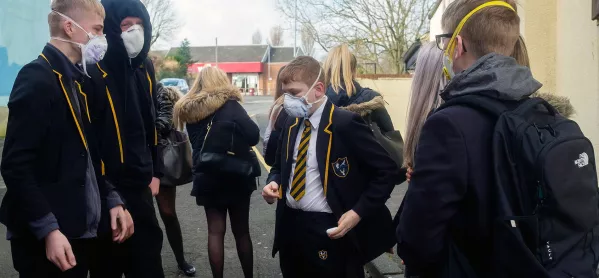Schools minister Nick Gibb contradicted his own department’s guidance over face masks when speaking to MPs this morning.
The minister said that “all schools” were in tier 1 of the Covid restrictions for education - which would mean that for secondaries “face coverings should be worn by adults and pupils when moving around the premises, outside of classrooms, such as in corridors and communal areas”.
Exclusive: Masks mandatory in hundreds more secondaries
Headteachers: PM’s Covid tiers are ‘baffling for schools’
Tiers: DfE’s worst-case scenario for restricting access to schools
In fact, according to Department for Education guidance, this mandatory masks policy only applies to secondaries in areas where the local Covid alert level is “high” or “very high”.
Coronavirus: Mixed messages on face masks in schools
But most areas of England currently have a “medium” Covid alert level, where the policy on masks is left to the discretion of schools.
Schools in these areas are not on any tier for Covid education restrictions, according to the DfE. But Mr Gibb either was unaware of this, or had different information when he appeared before the Commons Education Select Committee this morning.
Discussing the four tiers of Covid restrictions for schools, he told the MPs: “Tier 1 is where all schools are at the moment.”
He also went on to suggest that there were no immediate plans to move schools up to tier 2 - where secondaries use pupil attendance rotas - let alone tiers 3 and 4, which involve school closures.
“Tier 2 and the criteria for moving to a different tier will be issues such as the local infection rate,” Mr Gibb said.
“It will be criteria such as the number of confirmed cases in a school, the number of staff absent in a school, all those criteria will help to inform the decision about whether to move schools to tier 2.”
The minister added: “The advice at the moment is to stay in tier 1 because the CMO [chief medical officer] says the risks of children being out of school in terms of their mental wellbeing, their development, their education is higher than it is in school.”




